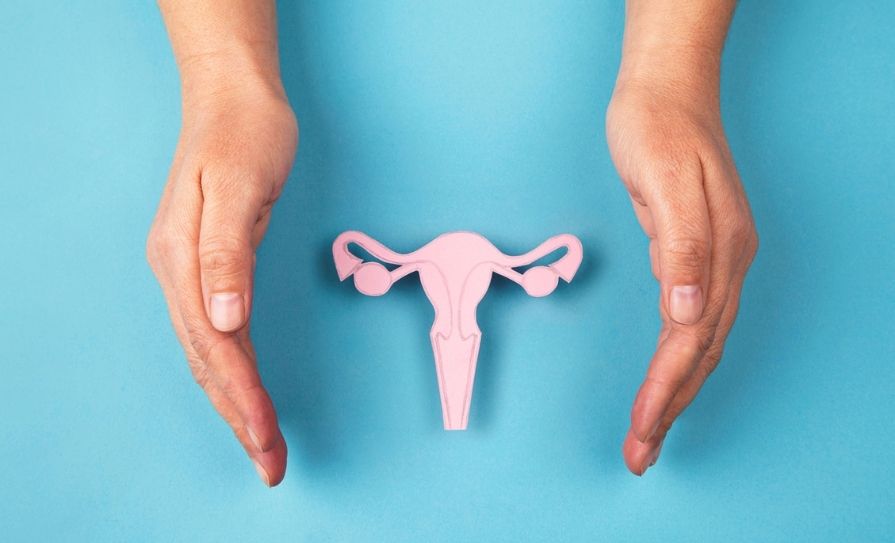
Studies reported at ESMO 2024 reveal new groups of women with early-stage endometrial and cervical cancers who gain clinically meaningful benefit from adding immunotherapy to current standard treatments, while a first-in-human study found ‘promising’ anti-tumour activity with a novel antibody drug conjugate (ADC) targeting the protein claudin 6 in heavily pre-treated patients with ovarian and endometrial cancers.
Gynaecological cancers, including endometrial and cervical cancers, remain a leading cause of cancer deaths and a major challenge to women’s health worldwide. Immunotherapy has greatly improved survival in many people with different cancers such as melanoma, but results have been more variable in those with gynaecological cancers, so there is a lot of interest in determining how best to use immunotherapy in these patients.
Results from a phase 3 randomised double-blind study in high-risk locally advanced cervical cancer showed that pembrolizumab plus concurrent chemoradiotherapy achieved a significant and clinically meaningful improvement in overall survival. The three-year overall survival rate was 82.6 per cent in patients randomised to pembrolizumab compared to 74.8 per cent in the placebo group (p=0.0040); all patients also received chemoradiotherapy.
“The benefit in terms of improved overall survival should change our practice as soon as possible,” said Dr Isabelle Ray-Coquard, President of the Group d’Investigateurs National Evaluation des Cancers de l’Ovaire (GINECO), Centre Leon Bérard, Université Claude Bernard, Lyon, France, not involved in the study. “Immunotherapy plus chemoradiotherapy provides a new standard of care for patients with high-risk locally advanced cervical cancer,” she stated. “In the initial setting, current treatments such as radiochemotherapy are able to cure this disease, but with considerable side-effects for patients. We need to increase the chances to be cured with new treatment options that are better tolerated,” she added: “Further research should pinpoint subgroups of patients with localised disease who particularly benefit from immunotherapy, as well as determine the best treatments to combine with immunotherapy in the future to optimise outcomes.”
In this regard, another phase 3 randomised study in women newly diagnosed with high-risk endometrial cancer found that adding the immune checkpoint inhibitor pembrolizumab to chemotherapy after surgery did not improve disease-free survival. However, subgroup analysis revealed that patients with deficient mismatch repair (dMMR) tumours showed clinically meaningful improvements in disease-free survival with immunotherapy.
“Although this trial is not positive in the study population as a whole, it gives us important information indicating that patients with endometrial dMMR tumours are more sensitive and reactive to immunotherapy,” said Dr Elene Mariamidze, Medical Oncologist, Todua Clinic, Tbilisi, Georgia and President of the Georgian School of Oncology, not involved in the study either. She suggested that the results will guide future research with immunotherapy in early-stage endometrial cancer.
While acknowledging immunotherapy is beneficial in some gynaecological cancers, Dr Ray-Coquard agrees that it is not for all patients. “We need to focus on which subgroups of patients with particular gynaecological cancers benefit from immunotherapy. Findings on the subgroup with newly diagnosed endometrial dMMR tumours offer a powerful example that identifying a good biomarker enables us to change a patient’s story definitively,” she added.
“New treatment options for women with gynaecological cancers to improve outcomes are key,” emphasised Dr Mariamidze. “Fewer treatment options are available for gynaecological cancers compared to other cancers, such as breast cancer. Many gynaecological cancers have high rates of recurrence even after initial successful treatment, underscoring the need to develop new therapies that are both more effective and also with a lower toxicity.”
A first-in-human phase 1 study of TORL-1-23, an ADC targeting the protein claudin 6, showed good tolerability and anti-tumour activity in heavily pre-treated patients with ovarian and endometrial cancers that expressed the protein. Claudin 6 is aberrantly expressed in many cancers, including ovarian and endometrial cancers. The researchers reported that the study, which also included patients with testicular cancer and non-small cell lung cancer, showed ‘promising preliminary antitumour activity’.
“Although at an initial stage, this study is very interesting for several reasons,” said Dr Ray-Coquard. “Firstly, it paves the way for a new target for antibody-drug conjugates in gynaecological cancers, where we currently have very few validated ones. Secondly, the findings suggest potential efficacy in ovarian cancer, a disease for which we currently have very few treatment options.” She considered that claudin 6 is of particular interest as a treatment target because its expression is very low in healthy cells, thereby limiting treatment toxicity. “The next step will be to confirm the response and the duration of response and assess the effect on progression-free survival in a larger group of patients with ovarian cancer and to test the safety and efficacy in a phase 3 randomised clinical trial,” Dr Ray-Coquard added.
Looking to the future, Dr Mariamidze said: “I think combination therapies will be the future in gynaecological cancers, potentially involving combinations of immunotherapy with chemotherapy or radiotherapy and targeted agents. There is also significant room for growth in developing personalised medicines, such as neoantigen vaccines and personalised immunotherapy based on tumour type and molecular characteristics.”
The studies presented at ESMO 2024 mark important progress in gynaecological cancer research, suggesting that several new treatment options may soon be available. “Which is very good for our patients. The development of new therapies such as immune therapy will offer the chance to cure more early-stage gynaecological cancer patients and potentially with new ADCs to prolong overall survival,” Dr Ray-Coquard concluded.





Leave a Reply
You must be logged in to post a comment.